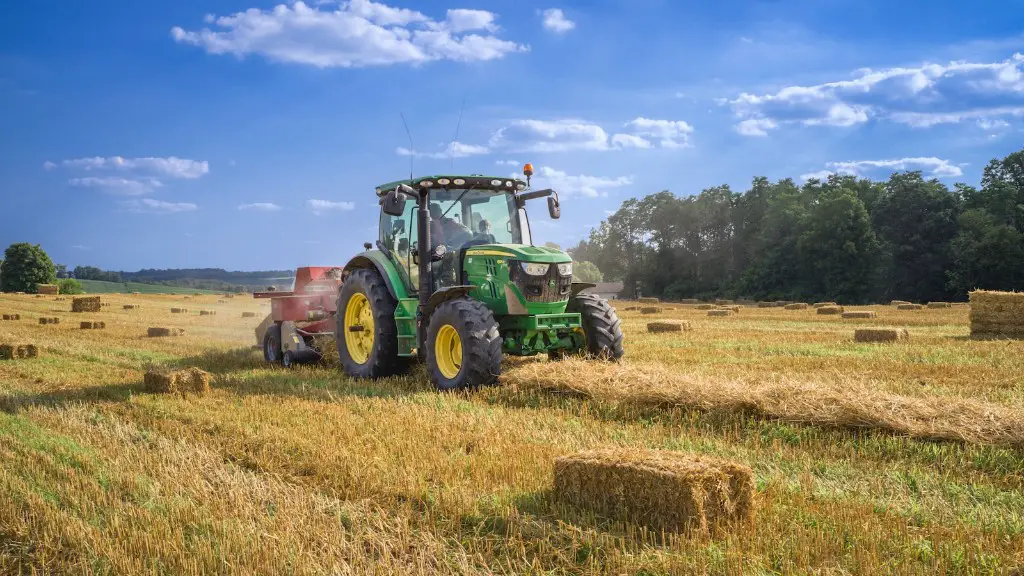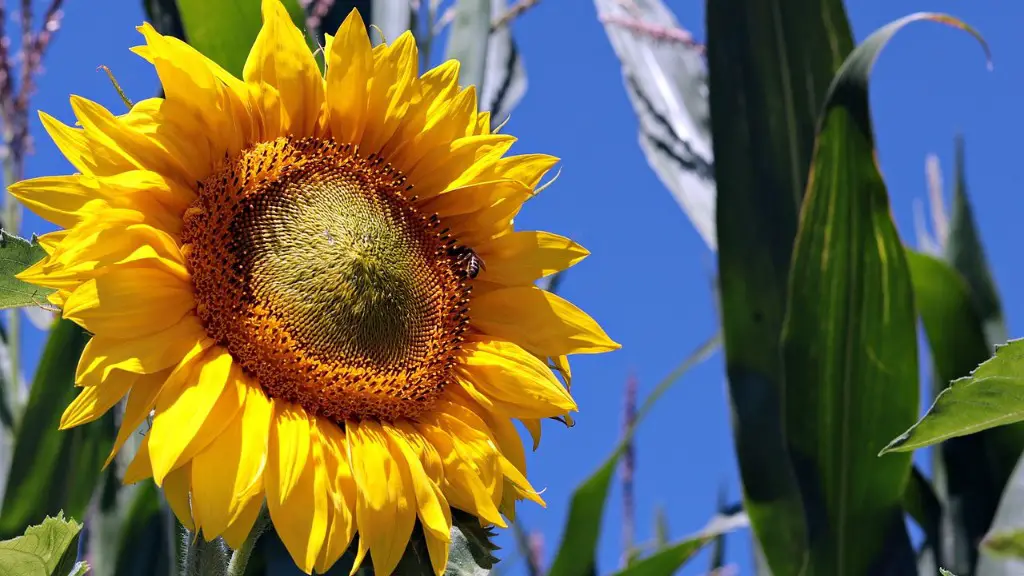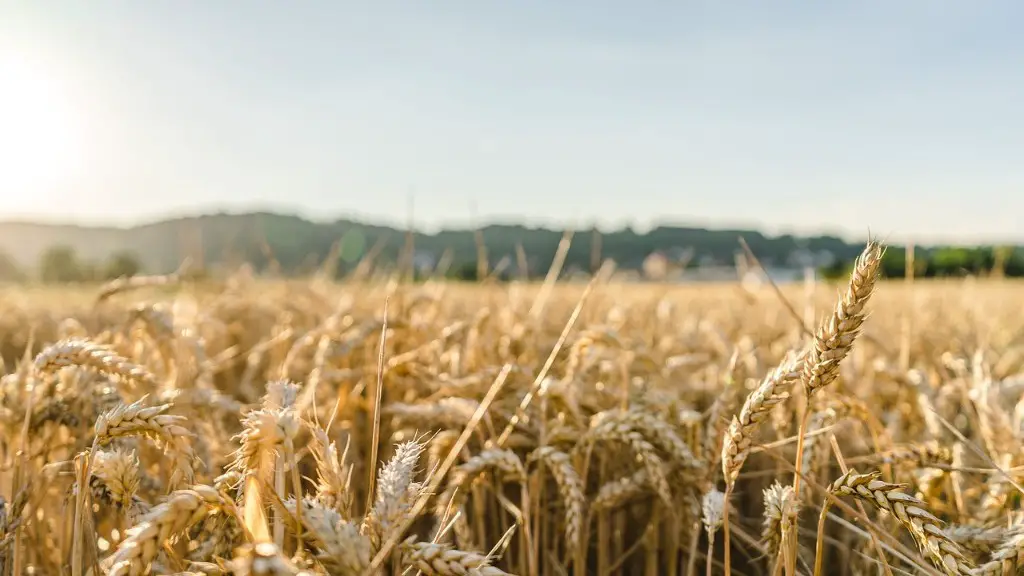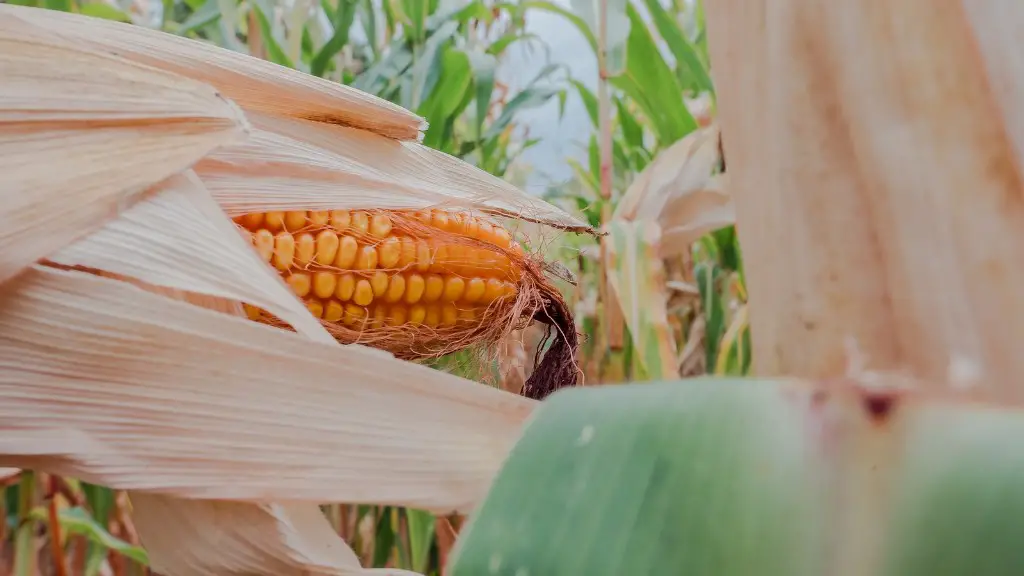The use of biotechnology in agriculture has increased in recent years as farmers look for ways to improve crop yields and decrease the reliance on chemical pesticides. Biotechnology can be used to develop crops that are resistant to herbicides, pests, and drought. This can lead to increased yields, reduced costs, and fewer environmental impacts.
Some benefits of biotechnology in agriculture include increased crop yields, resistance to pests and diseases, and tolerance to environmental stresses. Biotechnology can also lead to the development of new and improved products, such as herbicides, insecticides, and vaccines.
What are the benefits of biotechnology?
Biotechnology has a range of potential applications that can provide significant benefits for society. These include the production of sustainable chemicals, energy and other materials, as well as the development of genetically modified crops that can help increase food production. Additionally, bioprocesses can be used to treat seawater to produce fuel and chemicals, and bio-processing can be used to create zero-waste products. Finally, carbon dioxide can be used as a raw material in biotechnology processes, and regenerative medicine can be used to create new organs.
Biotechnology has helped to increase crop productivity by introducing such qualities as disease resistance and increased drought tolerance to the crops. Researchers can select genes for disease resistance from other species and transfer them to important crops. This has helped to improve the quality of crops and make them more resistant to disease and pests.
What are the advantage and disadvantages of biotechnology in agriculture
Biotechnology is a controversial topic with pros and cons on both sides. Its pros include nutritional quality improvement, transfer of the desired traits of plants and animals, and the minimization of pesticide use. Biotechnology cons include a decrease in biodiversity and a negative impact on health and the environment.
Biotechnology has a number of advantages that make it a powerful tool for improving crop production. These advantages include the ability to improve the nutritional quality of crops, the potential to increase crop yields, the reduction in the use of pesticides, and the preservation of resources. Additionally, biotechnology can help to eliminate or minimize waste products, and can provide a means for genetic screening.
What are three examples of how biotechnology might be used in agriculture?
Biotechnology has revolutionized agriculture over the past few decades, with farmers now able to grow more food with fewer inputs. One of the most important applications of biotechnology in agriculture is the development of genetically modified (GM) crops. These crops have been modified to resist herbicides and pests, and to tolerate extreme weather conditions. As a result, they can be grown with fewer inputs, which reduces costs and improves yields.
Other important applications of biotechnology in agriculture include the development of biofuels and the improvement of plant growth and seed quality. Biofuels are an important alternative to fossil fuels, and the development of more efficient and sustainable biofuels is a key area of research. Additionally, biotechnology can be used to improve plant growth rates and to develop seeds that are resistant to disease and pests.
Animal husbandry is another area where biotechnology is having a major impact. The use of genetic engineering and other biotechnology tools is allowing farmers to improve the health and productivity of their animals. For example, genetically modified animals are being developed that are resistant to diseases, such as foot-and-mouth disease. Additionally, biotechnology is being used to improve the efficiency of animal breeding, which is helping to meet the demand for animal products.
Biotechnology has the potential to help address many global problems, such as food security, energy security, climate change, aging society, and infectious diseases. For example, biotechnology can be used to develop more efficient and sustainable agricultural production systems, develop new renewable energy sources, improve water and air quality, and develop new and more effective treatments for diseases.
What are 3 benefits of agriculture?
Agriculture is the primary source of raw materials for human survival. Crops for food, silk for clothing, and wood for shelter all come from agriculture. Without agriculture, humans would not be able to meet their basic needs for survival.
Biotechnology has helped to increase crop productivity by introducing such qualities as disease resistance and increased drought tolerance to the crops. Now, researchers can select genes for disease resistance from other species and transfer them to important crops. This has helped to reduce the need for pesticides and other chemicals, and has also helped to improve yields.
What are 3 pros advantages about biotechnology
Biotechnology is a promising technology that offers many advantages, especially in three broad categories: environmental protection, higher yields, and improvements in human health. Biotechnology can help us protect the environment by reducing pollution, improving crop yields to reduce pressure on land resources, and developing new renewable energy sources. It can also help us improve human health by developing new and better medicines, diagnosis, and treatments.
Biotechnology is an important tool that is being used to address problems in all areas of agricultural production and processing. This includes plant breeding to raise and stabilize yields, to improve resistance to pests, diseases and abiotic stresses, and to enhance the nutritional content of foods.
What are the benefits of agricultural biotechnology give a least 5?
Farmers are increasingly adopting Conservation Agriculture (CA) practices. CA involves minimum soil disturbance, maintaining a permanent soil cover, and diversifying plant species. This is delivering important benefits in the form of improved soil health and water retention, reduced runoff, fuel conservation, reduced greenhouse gas emissions and more efficient carbon storage in the soil.
Biotechnology is a term that encompasses a wide range of technologies and techniques used to alter living organisms to make useful products or to perform specific tasks. Biotechnology has applications in four major industrial areas, including health care, crops and livestock, alternative fuels, and environmental remediation.
What are 5 biotechnology examples
Biotechnology has revolutionized many aspects of our lives, from the food we eat to the medicine we take. Here are some key applications of biotechnology that you may not be aware of:
DNA profiling is used in a variety of ways, from crime scene investigation to paternity testing.
DNA cloning is used to create copies of specific genes or segments of DNA. This can be used to create “ recombinant DNA ”, which can be used to produce new proteins or drugs.
Transgenesis is the creation of genetically modified organisms (GMOs). This technology is used to produce crops that are resistant to herbicides or pests, for example.
Genome analysis is used to understand the functions of genes and to identify genes associated with diseases. This information can be used to develop new diagnostic tests and treatments.
Stem cells and tissue engineering are used to create replacement tissues and organs. This has the potential to transform the field of medicine, as we can now replace damaged tissues with healthy ones.
The use of biotechnology in agriculture is becoming more and more commonplace as farmers look for ways to improve the quality, quantity, and nutrition of their crops. Shelf life and taste are also important considerations, and biotechnology can help farmers to obtain greater yields with reduced energetic costs. There are many different applications of biotechnology in agriculture, and it is an exciting and ever-evolving field.
What type of biotechnology is commonly used in agriculture farming )?
Many new plant varieties being developed or grown by farmers have been produced using genetic engineering, which involves manipulating the plant’s genes through techniques of modern molecular biology often referred to as recombinant DNA technology. This has allowed for the creation of plants with desirable traits such as resistance to pests or herbicides, or with improved nutritional content. While there are some concerns about the safety of genetically engineered plants, the vast majority of these plants have been found to be safe for human and animal consumption.
Biotechnology is a branch of biology in which technology is applied in biological systems to create useful products for human welfare. It is used in managing agriculture in the following ways: Genetically Modified (GM) crops are now produced by incorporating beneficial genes in the DNA of the crops. This helps to improve the quality and yield of the crops. Pest resistant crops are another example of how biotechnology is used in agriculture. By introducing genes that are resistant to pests, crops can be protected from the damaging effects of pests.
What are 4 benefits of agriculture
Agriculture provides humanity with the vast majority of its food, making it one of the most important factors in our survival. It also supplies us with many raw materials used in industry, such as cotton for clothing, wood for construction and paper products, and tobacco.
Agriculture is vital to international trade, as countries export agricultural products to earn revenue. This trade is crucial for the development of economies, as it allows countries to buy and sell goods and services.
Agriculture also provides employment for millions of people around the world. In developing countries, agriculture is often the only source of income for rural communities.
Agriculture can also help heal the environment. For example, agricultural practices such as crop rotation can help improve soil health, and organic farming can minimize the use of harmful pesticides.
Finally, agriculture is often linked to war. When countries are in conflict, they may use agricultural resources as weapons, or target agricultural infrastructure in order to disrupt their enemy’s food supply.
Agriculture can help reduce poverty, raise incomes and improve food security for 80% of the world’s poor, who live in rural areas and work mainly in farming. The World Bank Group is a leading financier of agriculture, with a strong focus on supporting small-scale farmers and helping countries develop policies and investments that will increase productivity and incomes.
Warp Up
The main benefits of biotechnology in agriculture are increased crop yields, reduced need for pesticides and herbicides, and more tolerant crops. Biotechnology can also be used to create more nutritious foods and to modify crops to grow in harsher environments.
The benefits of biotechnology in agriculture are many and varied. By improving crops and making them more resistant to pests and diseases, biotechnology can help farmers to increase yields and produce healthier food. Additionally, biotechnology can be used to develop new and improved methods of food production, such as aquaculture, that are more sustainable and environmentally friendly. In the future, biotechnology is likely to play an even more important role in agriculture, as we continue to face the challenges of feeding a growing world population while protecting our natural resources.





